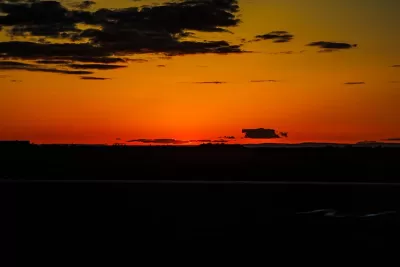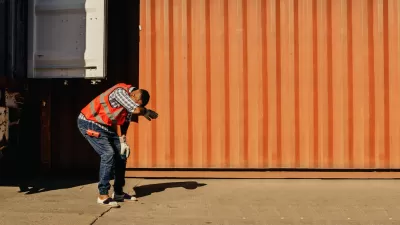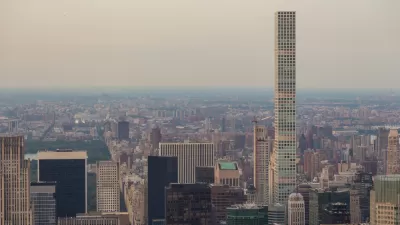This summer's heat waves wreaked havoc on physical infrastructure, but also highlighted vulnerabilities in our social support systems.

"In an era of escalating climate change," asserts Sarah Kaplan, "extreme heat is the United States’ most fatal form of weather disaster. Already this summer, hundreds of Americans have lost their lives amid a series of record-setting heat waves that scientists say would not have happened if not for human-caused warming." In Oregon and across the Pacific Northwest, "[r]oads have buckled, and train cables have melted. Emergency departments were overwhelmed."
In addition to physical infrastructure, officials "are realizing their social infrastructure is equally in need of repair. Long-standing inequities in housing and health care put the region’s poorest residents at greatest risk. Official warnings and government services didn’t reach those who most needed the help. Almost every victim of the heat wave died alone," Kaplan writes.
"When the heat dome scorched the state last month, Oregon did not have a heat early warning and response system, the gold standard for disaster planning. Residents in the typically temperate region didn’t know how to cope with extreme temperatures" and many didn't receive information about how to protect themselves.
"The most effective strategy for preventing heat deaths is direct outreach, experts say. After a brutal nine-day heat wave killed 118 people in Philadelphia in 1993, the city implemented one of the nation’s most robust heat response programs." Later, "[a] study by a team of Boston researchers found that the Philadelphia system averted an average of 45 deaths per year."
According to Gabriela Goldfarb, manager of the Oregon Health Authority (OHA)'s environmental public health section, "[p]reventing deaths during climate disasters is not just about emergency response, but rather "about building 'social resilience,' addressing the isolation and inequality that make people vulnerable in the first place" by reducing the effects of urban heat islands, expanding access to health care, and funding better outreach for marginalized communities.
FULL STORY: Heat waves are dangerous. Isolation and inequality make them deadly.

Planetizen Federal Action Tracker
A weekly monitor of how Trump’s orders and actions are impacting planners and planning in America.

Map: Where Senate Republicans Want to Sell Your Public Lands
For public land advocates, the Senate Republicans’ proposal to sell millions of acres of public land in the West is “the biggest fight of their careers.”

Restaurant Patios Were a Pandemic Win — Why Were They so Hard to Keep?
Social distancing requirements and changes in travel patterns prompted cities to pilot new uses for street and sidewalk space. Then it got complicated.

California Homeless Arrests, Citations Spike After Ruling
An investigation reveals that anti-homeless actions increased up to 500% after Grants Pass v. Johnson — even in cities claiming no policy change.

Albuquerque Route 66 Motels Become Affordable Housing
A $4 million city fund is incentivizing developers to breathe new life into derelict midcentury motels.

DC Area County Eliminates Bus Fares
Montgomery County joins a growing trend of making transit free.
Urban Design for Planners 1: Software Tools
This six-course series explores essential urban design concepts using open source software and equips planners with the tools they need to participate fully in the urban design process.
Planning for Universal Design
Learn the tools for implementing Universal Design in planning regulations.
Heyer Gruel & Associates PA
JM Goldson LLC
Custer County Colorado
City of Camden Redevelopment Agency
City of Astoria
Transportation Research & Education Center (TREC) at Portland State University
Camden Redevelopment Agency
City of Claremont
Municipality of Princeton (NJ)





























